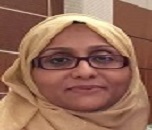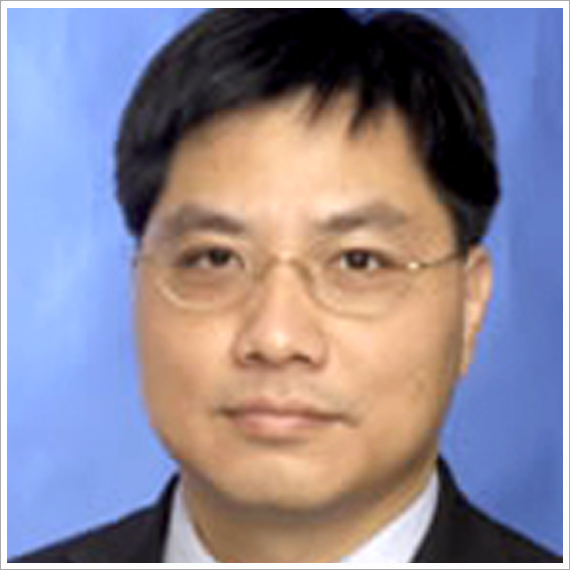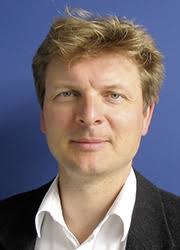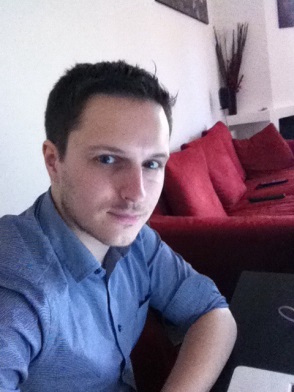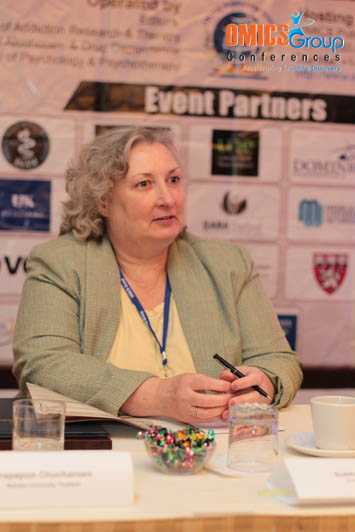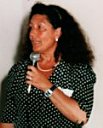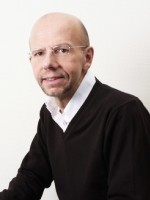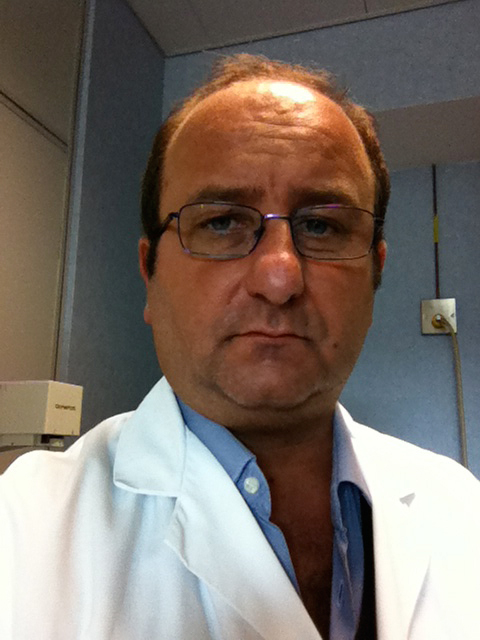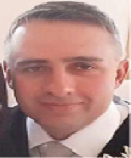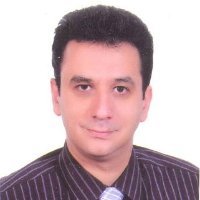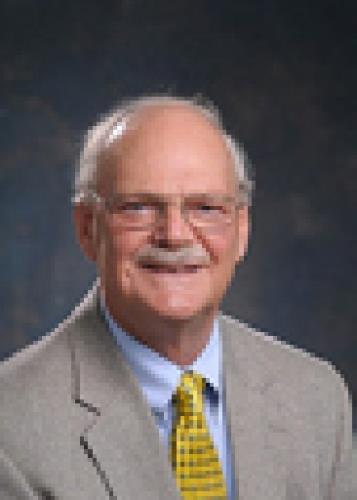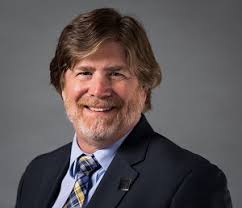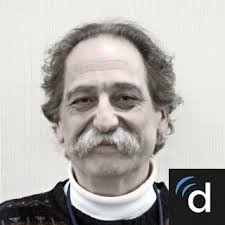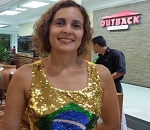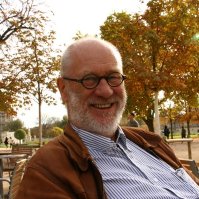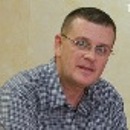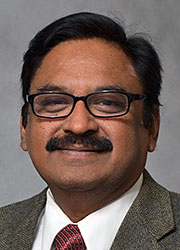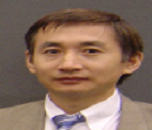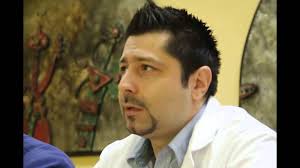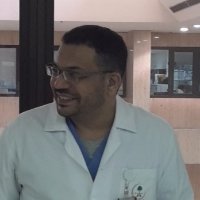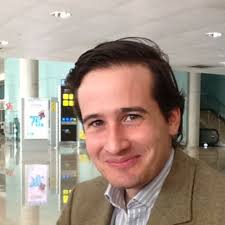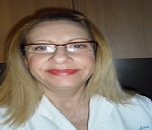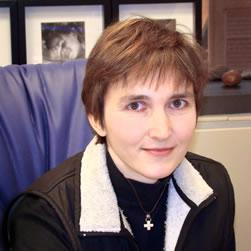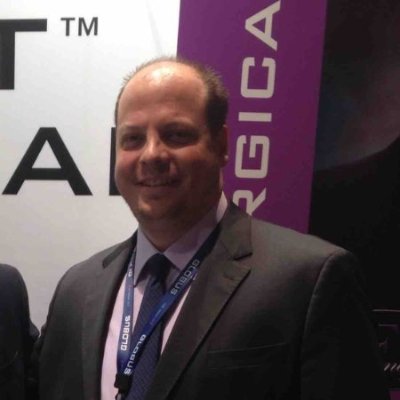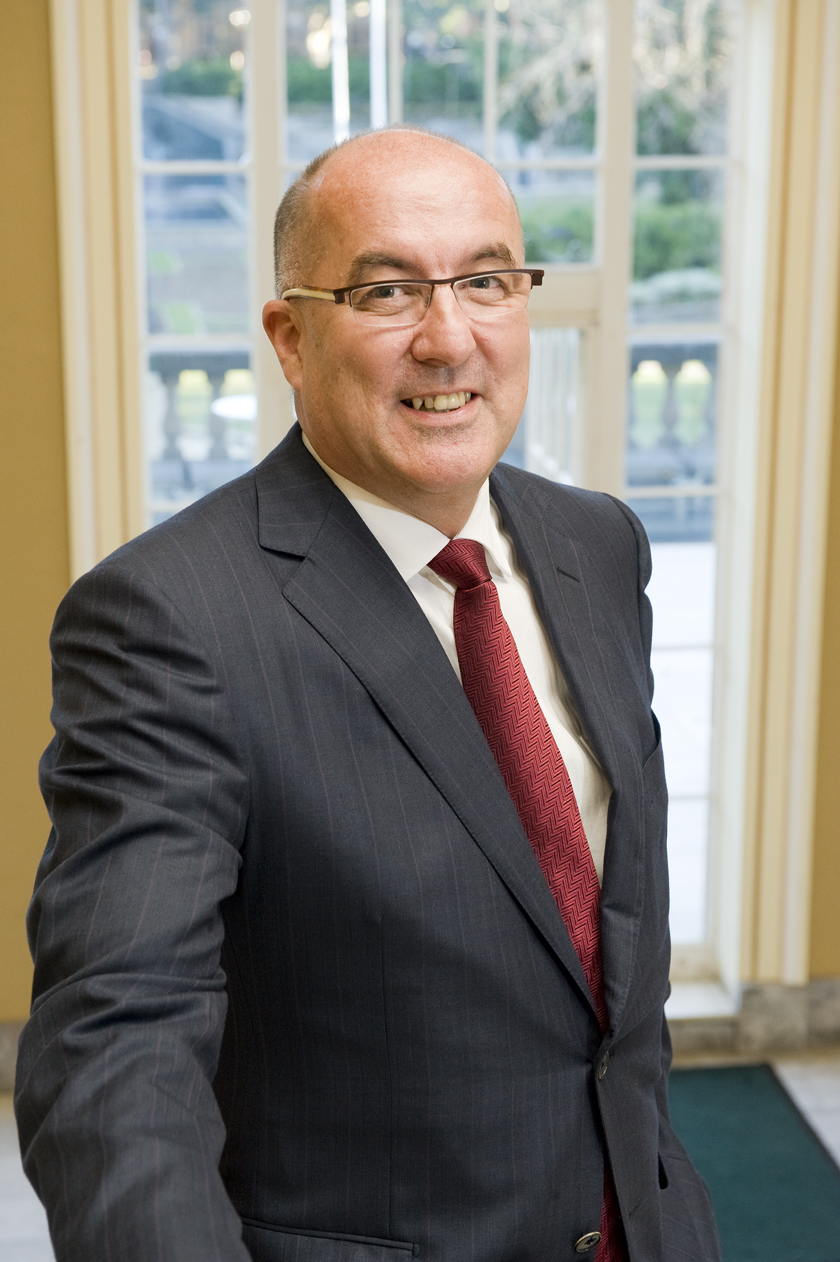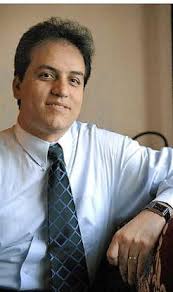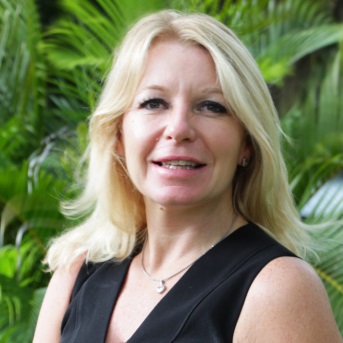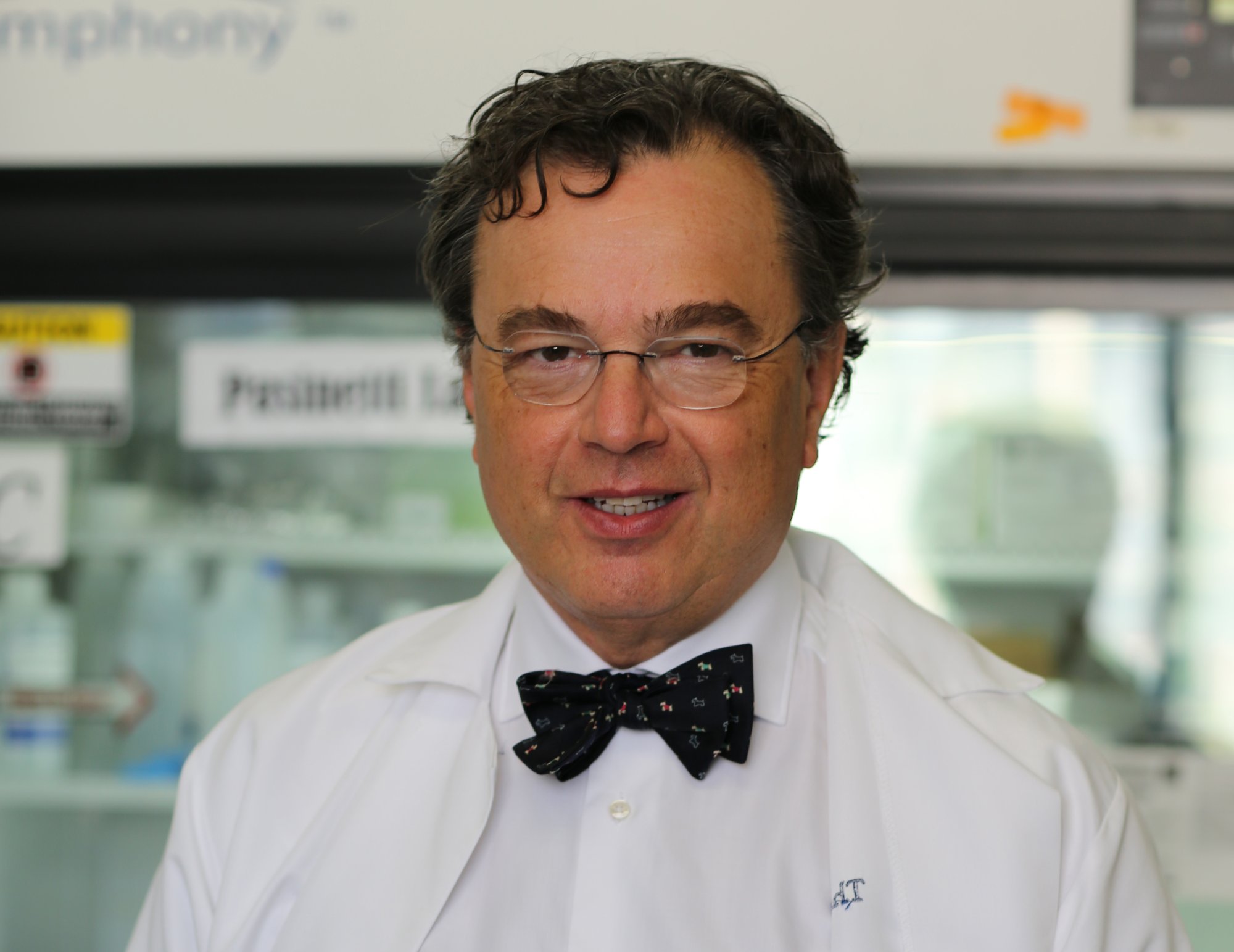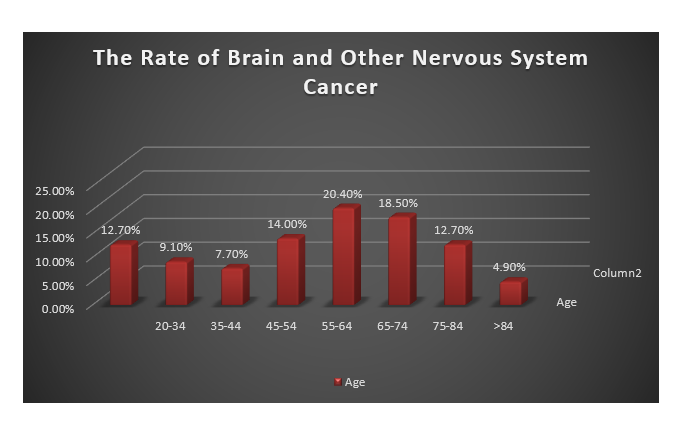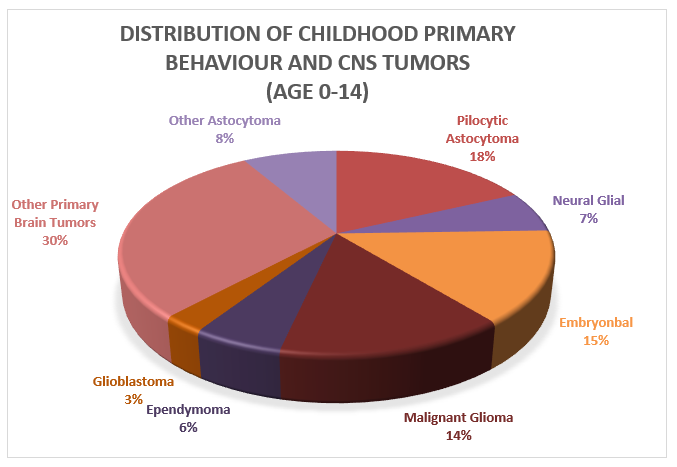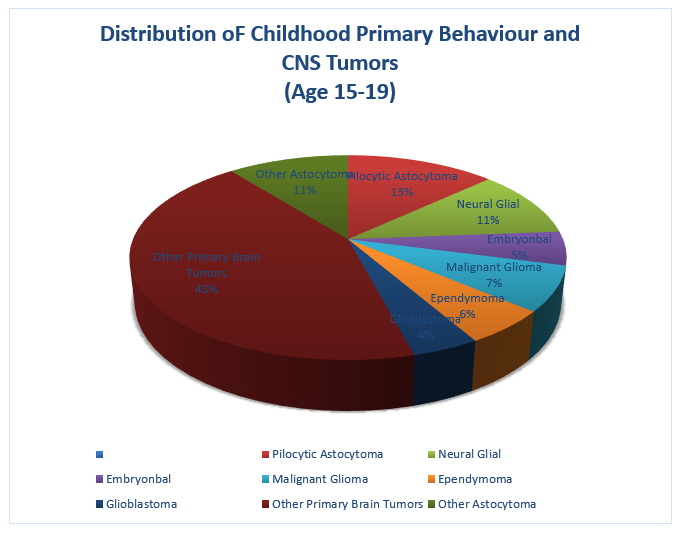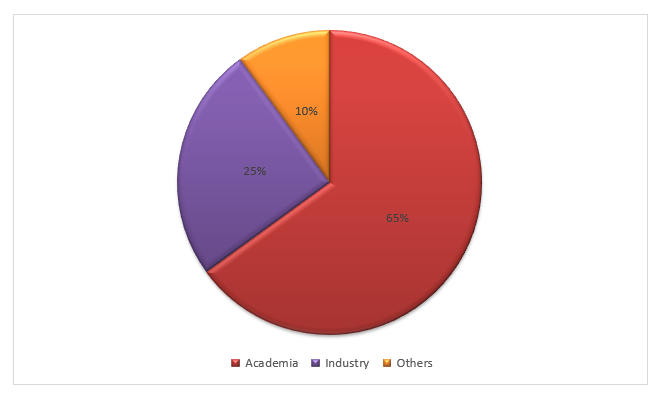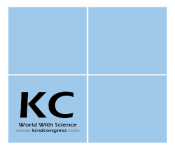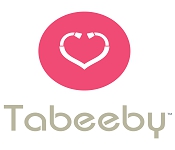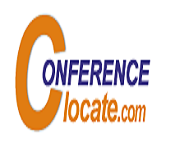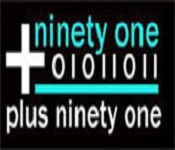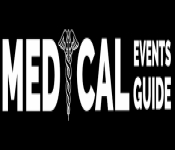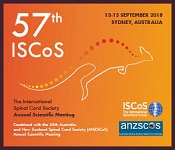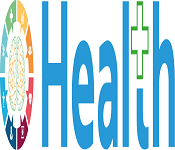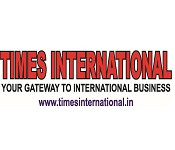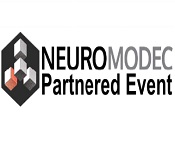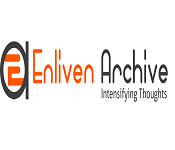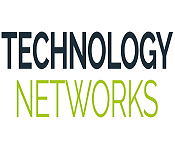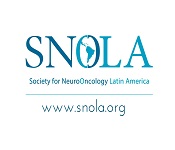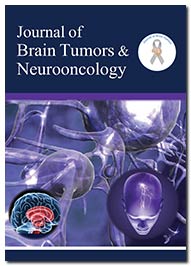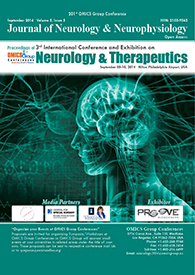Theme: Elucidate the mystery challenges of Neuro-oncology and Neurosurgery
Neurooncology Surgery 2018
Neuro-Oncology Surgery 2018 Conference all the participants from all over the world to attend the 3rd International Conference on Neurooncology Surgery 2018 which is going to be held during September 20-21, 2018 Dubai, UAE. The main theme of the conference is “Elucidate the mystery challenges of Neuro-oncology and Neurosurgery”. This Conference will be an examination of new research Innovation in the field of Neuroscience and spread the most recent progressions in Neuro-Oncology prevention and restoration and helps in the meeting of professionals, experts, academicians and researchers from all over the world.
Overview of Neuro-Oncology and Neurosurgery:
An important area of clinical Neuro-Oncology and Neurosurgery is progressively significant as survivorship increases and as patients experience potential morbidities related to modern therapies. Neuro-Oncology is the study of Brain and Spinal cord neoplasms, numerous of which are (at least eventually) very dangerous and life-threatening (Astrocytoma, Glioma, Glioblastoma multiforme, Ependymoma, Pontine Glioma, and Brainstem tumors are among the numerous examples of these). Among the Malignant Brain cancers, Gliomas of the brainstem and pons, Glioblastoma multiform, and high-grade (profoundly anaplastic) Astrocytoma are among the worst.
Geographically market is segmented into Europe, North America, Latin America, Asia Pacific, and the Middle East and Africa. According to the market study, the market value for Neuro-Oncology drug manufacturing companies (i.e. on Brain Cancer and CNS Tumors) stands more than double to $623 Million by 2020. A major part of research is going on the top Universities from across the globe. Many companies are associated with various diagnostic instruments and other therapeutics. Besides this various society and research labs are also associated in this research field.
Track 1: Neuroscience and Neuro-Oncology
Neuro-Oncology is the multifaceted specialty focused on the state-of-the-art treatment and advanced developmental research in brain and spinal cord neoplasm and many of which are very hazardous and life-threatening (glioma, pontine glioma, astrocytoma, ependymoma, glioblastoma multiforme and brain stem tumours). Among the carcinogenic brain cancers, astrocytoma, glioblastoma multiforme, gliomas of the brainstem and pons are worst. Cancer spreads to the Nervous System by direct invasion or compression from continuous tissues relates to the relation of the Nervous System to other structures.
The global central nervous system (CNS) therapeutics market to grow at a CAGR of -5.9% and expected to reach USD 128.9 billion by 2025, which increases in disease ubiquity rates due to increase in population, an introduction of new drugs, and increased outgo on healthcare.
Track 2: Genomics and Molecular Neuro-Oncology
In recent years, cutting-edge genomic and molecular techniques have now begun to clarify the transformed phenotype of brain tumours and identify oncogenic pathways that might be amenable to targeted therapy. Mutation or loss of the tumor suppressor gene p53 and its encoded protein are the most common genetic events in human cancer. p53 functions as a transcription factor and is responsible for the transactivation and repression of key genes involved in cell growth, apoptosis, and the cell cycle.
Molecular therapeutic strategies to normalize p53 signaling in cells with mutant p53 include the pharmacologic rescue of the mutant protein, gene therapy approaches, antisense approaches and oncolytic viruses. Further development of targeted therapies designed to restore or enhance p53 function, and evaluation of these new agents in clinical trials, will be needed to improve survival and quality of life for patients with brain tumors.
Track 3: Pediatrics and Geriatrics Neuro-Oncology
High-grade gliomas in children are different from those that arise in adults. World Health Organization recognize the importance of childhood cancer, their main emphasis is on the more easily treated malignancies, such as leukemias and lymphomas, and not pediatric brain tumors, which are the second most common malignancy in children and the leading cause of cancer-related deaths in the pediatric population. Treatment of brain tumors in children can be very different from treatment in adults.
Contemporary population-based studies confirm the strong prognostic impact of age in many brain tumors. Elderly patients continue to be treated less aggressively than younger patients with the same tumors. However, biological factors may contribute to the negative prognostic impact of age. Moreover, complete responses defined by neuroimaging were much less durable in elderly as opposed to younger patients with primary central nervous system lymphoma in the German Primary Central Nervous System Lymphoma Study Group trial.
Track 4: Neuroimmunology and Neural Stem Cells (NSCs)
Neuroimmunology is a very interesting field of neuroscience, the examination of the nervous system and immune system. Neuroimmunologists hope to better appreciate the participation of these two complex systems in the midst of change, homeostasis, and response to injuries.
For better or for worse, stem cells are here to Stay. Initial treatment options utilizing neural stem cells (NSCs) focused mostly on their ability to reconstitute abnormal or destroyed tissue, as in the case of neurodegenerative disorders or stroke. Quiescent tumor-initiating with neural stem cell-like properties are resistant to antiproliferative therapy, enabling tumor recurrence.
Track 5: Spine and Spinal Disorders
Spine is a part of the axial skeleton, which is also known as the backbone that provides the main support to the body. The spinal column is formed by 33 interlinking bones which are known as vertebrae which allow the body to stand, bend and provides support to the entire body. The spinal column is divided into 5 categories: cervical, thoracic, lumbar, sacrum, and coccyx. When any kind of damage occurs to the spinal cord and leads to spinal cord injury, it causes permanent changes in sensation, strength and other body functions near to the site of the injury.
Spinal disorder refers to the condition diminish the backbone. These disorders can be congenital by birth, accidents, and injuries, or naturally due to the aging process. Some spinal disorders include spinal muscular atrophy, ankylosing spondylitis, spine tumors, lumbar spinal stenosis, osteoporosis and cauda equina and equine syndrome.
Track 6: Brain Tumor and Cancer
A brain tumor takes place when a mass of tissue that's shaped by an aggregation of abnormal cells. For the most part, the cells in body age, die and are recovered by new cells. But tumor cells increase, indeed in spite of the fact that the body does not need them, and not at all like typical old cells, they don't pass on. As this handle final, the tumor proceeds to develop as increasingly cells are included in the mass. Many distinctive sorts of brain tumors are there. Among them, some brain tumors are noncancerous (benign), and a few brain tumors are cancerous (malignant). Brain tumors can begin in your brain (primary brain tumors), or cancer can start in other parts of your body and spread to your brain (secondary, or metastatic brain tumors) but not all brain tumors are cancer.
Track 7: Neuro-Oncology and Pregnancy
In Pregnancy, the overall incidence of any malignancy is 1 per 1000 pregnancies, with predominant tumor types reflecting the overall incidence of tumor in women of childbearing age, with cervical cancer and breast cancer accounting for just over 50%. Pregnancy might stimulate tumor growth among women diagnosed with gliomas. Pregnant women with glioma face a high rate of cesarean section deliveries (46%) and a 25% risk of disease progression. Oncological treatments were immediately performed after delivery in 70% of cases who have glioma. For gliomas diagnosed during pregnancy (n = 28), the tumor was discovered during the second and third trimesters in 29% and 54% of cases, respectively, with seizures being the presenting symptom in 68% of cases.
Track 8: Neuro-Oncology and Vision Science
Changes in vision-related with brain tumors can incorporate double vision or unexplained obscured vision and make it troublesome to studied and watch TV, or you may experience transitory loss of vision ('greying out'), frequently happening when you suddenly stand up or alter pose. Or you may discover you have lost part of your field of vision. This could lead to you bumping into objects, or you could feel as in case objects or individuals are abruptly showing up on one side of you.
The optic disc at the back of eye getting to be swollen as a result of the expanded weight in the skull which leads to the changes in vision. The optic disc is the point on the retina where the optic nerves enter the eye from the brain. As the tumor develops, or there is a build-up of cerebrospinal fluid in the brain, it can squeeze normal healthy brain tissue counting the main cranial nerve inside the brain. The coming about weight can change how well the nerve works, and on the off chance that this happens to the optic nerve, your vision can be affected.
Track 9: Neurostimulation, Glutamate Neurotransmission and Neuroimaging in Cognitive Neuroscience
Neurostimulation provides pain relief by interrupting the traveling of pain signals between the brain and the spinal cord. In other words, it defeats pain. Neurostimulation therapy treatment, also known as spinal cord stimulation, is the safe delivery of low voltage electricity to the dorsal column or peripheral nerves.
Glutamate recognized as the major excitatory neurotransmitter in the mammalian brain, in part due to its ubiquitous nature and diverse metabolic roles within the CNS. It is used by nerve cells to send the signal to another cell.
Neuroimaging is an umbrella term counting an assortment of strategies and innovations. Neuroimaging refers to procedures that deliver images of the brain without requiring surgery, cut off the skin or any coordinate contact with the inside of the body.
Track 10: Neuro-Oncology Biomarkers
The word 'biomarker' alludes to the 'biological marker', or indicator. It could be a alter in a quality in the tumour's DNA, or it could be a molecule created by the tumor. biomarkers have risen as diagnostic, prescient, and prognostic instruments that have the potential to convert the field of brain tumor diagnostics. The cerebrospinal fluid (CSF) biomarker is extraordinarily explored as an elective diagnostic fluid to serum in the look for pediatric brain tumor markers.
Track 11: Neuropathology and Neuroradiology
Neuropathology is explained about the contamination of central and peripheral nervous tissue in adults and children, usually in the form of either small surgical biopsies or complete autopsies. Neuropathology is a subordinate long-suit of anatomic pathology, neurology, and neurosurgery. Work of the neuropathologist comprises predominantly, of largely of examining biopsy tissue from the brain and spinal cord to assist in the interpretation of disease. The biopsy is typically requested after a mass is detected by radiologic imaging. With reference to autopsies, the central drudgery, of the neuropathologist is to facilitate in the post-mortem diagnosis of a variety of forms of dementia, mental health and other affliction that affect the central nervous system.
Neuroradiology is a subspecialty of radiology provides comprehensive imaging of the brain, spine, and neck in pediatric and adult patients using magnetic resonance imaging (MRI) and computed tomography (CT). Plain radiography is utilized on a limited basis and ultrasound is used in limited circumstances, in particular in the pediatric population. Angiography is traditionally used for diagnosis of vascular abnormalities or diagnosis and characterization of masses or other lesions but is being replaced in many instances by CT and MRI angiography and imaging.
Track 12: Psycho-Oncology and Psychosocial Advances
Psycho-oncology is highly multi-disciplinary. The dimensions of psycho-oncology have changed as more children and adults have earned the title of cancer survivor. Children with brain tumors and CNS disease are likely to experience more psychological distress which is thought to be largely due to the neurocognitive effects of their disease. Psychological distress can persist beyond primary treatment, and often increases in the long-term phase of illness due to the perceived threat and experience of recurrence and functional decline. Over the last decade, there have been many advances in the psychosocial management of people with a brain tumour.
Track 13: Spine Surgery
Spine surgery is recommended by surgeons if the non-invasive treatment such as exercise, medication, physiotherapies and psychical therapy fails to relieve symptoms. Surgery is only considered in those cases where the exact source of pain can be determined, such as a herniated disc, scoliosis or spinal stenosis. As with the orthopedic surgeries, spinal surgeries require plates, rods, bone screws, and inter-body devices, like interspinous process devices, inter-body cage, and pedicle screws to stabilize the spine until the spinal fusion solidifies properly.
Track 14: Surgical Neurology and Neuro-Oncology
The Surgical Neuro-oncology Program specializes in the surgical cancers treatment influencing the brain and spine tumors, counting pituitary tumors and other injuries of the cranium base. Pediatric brain tumors are treated by multidisciplinary bunch counting pediatric oncologist, radiation oncologist, and neurosurgeon. The group of neurosurgeons, neurologists, radiation oncologists, medical caretakers, social specialists, nutritionists, and others work to care patients, to accomplish higher cure rates and longer survival, and to chart the course of treatment for patients.
Track 15: Neurologists Vs. Neurosurgeons
A neurologist is a specialist with specialized training in treating, diagnosing and disorders of the spine and brain. Neurologists are the principal care suppliers or specialists to other doctors. Neurologists can prescribe surgical treatment, but do not perform surgery. When treatment incorporates surgery, neurologists will monitor surgically treated patients and administer their proceeding treatment.
Neurosurgeons are more than fair brain specialists. These therapeutic masters are prepared to offer assistance patients with head and spine injury; cerebrovascular disarranges, such as aneurysms of the brain and clogged arteries in the neck that can lead to strokes, birth defects, brain and spinal tumors and abnormalities of the peripheral (face, arms, hands, legs, and feet) nerves.
Track 16: Nursing Education and Research
The nurses implemented their knowledge and skills to adopt different measures in different conditions, investigated the patients’ health problems and carried out personalized effective actions. Nurses should put effort into community nursing to allow patients to live in a safe environment, to satisfy the health needs of human being and their needs for health knowledge and enhance their self-care abilities. nurses are the main professionals who carry out community health education.
Track 17: Neuro-Oncology Cognition Measurement and Treatment
Cognitive skills can be measured using special tests to determine if someone has problems with thinking, emotions or behavior. The test results can help identify appropriate treatments to optimize the person’s cognitive functions. During an initial (baseline) evaluation, tests can be done to measure Memory, language skills, visual/spatial functions, Attention/concentration, emotional functioning, overall quality of life, executive functions (problem-solving, planning and organization skills), mental processing speed (quickness in thinking) and motor skills (the movement of muscles in the body such as moving the arms, hands, legs or feet).
Track 18: Genetic medicine:- Is This The Future Treatment of Neuro-Oncology?
Summary
Neuro-Oncology Surgery 2018 welcomes attendees, presenters, and exhibitors from all over the world to Dubai. We are delighted to invite you all to attend and register for the “International Conference on Neuro-Oncology and Neurosurgery” which is going to be held during September 20-21, 2018 in Dubai.
The organizing committee is set up for a thrilling and exciting conference program including complete lectures, workshops on a variety of topics, symposia, poster presentations and various programs for participants from all over the world. We invite you to join us at the Neuro-Oncology Surgery 2018, where you will be sure to have a meaningful experience with scholars from around the world. All members of the Neuro-Oncology Surgery 2018 organizing committee look forward to meeting you in Dubai.
Importance and Scope:
Geographically market is segmented into North America, Asia Pacific, Latin America, Europe and Center East and Africa. The global central nervous system (CNS) therapeutics market to grow at a CAGR of 5.9% and expected to reach USD 128.9 billion by 2025, which increases in malady ubiquity rates due to increase in the population, the introduction of new drugs, and increased outgo on healthcare. A large-scale of research is going on the top Universities and colleges on Neuro-Oncology over the globe. Many companies are associated with different diagnostic instruments and other therapeutics. Other than this different societies and research labs are too associated in this research field.
Increasing occurrence of malicious disorders including Meningitis and Brain Tumor disease together with other inherited CNS disorders has resulted in the increased necessity for new improvements in neuroscience industry. The market is expected to experience growth over the forecast period on account of growing demand in laboratories and academic centers. The market players aim at introducing interesting innovations and unique technologies with the ability to obtain experiences to understand superior the compound nervous functionalities and neural manipulations. Besides, expanding aggregate geriatric population each year is expected to drive significantly the demand owing to a growing need for better treatment and pharmaceutical.
Neuro-Oncology Surgery 2018 conferences aim to provide expert insight into recent advances in key areas of Neuro-Oncology and a balanced perspective on how these may influence guidelines and patient management. The vision behind this world congress is to serve as a unique global platform for Neurologist, neurosurgeon, and researchers from world-renowned institutions to share and exchange new clinical studies and advancements in dealing with a brain and spine tumor.
Neuro-Oncology Surgery 2018 events have a wide scope globally in guiding Neuro-Oncology students, neuro-oncologists, scientists, research scholars, medical practitioners, leading medical industries to champion professional and social relationship with sister organizations and actively concur within the analysis and safe utilization of the medicine with honor and ethics. These major scientific events come up totally analyzed to proffer the best prospect for the academicians in terms of collaborations to undertake the International workshops to present their research, and trade professionals in terms of exhibiting their products & services and B2B networking. The scientific conferences include oral and poster presentations, seminars, and workshops from the professionals working within the field of medicine.
Why Dubai??
Dubai is considered as an important center for higher education and harbors, healthcare, well reputed and prestigious colleges and Colleges. Dubai conferences indeed play an imperative role in promoting scientific information and thoughts all over the world. It can be considered as a suitable medium for the relocation of valuable knowledge about research and novel progressions around the world. The conferences taking part here would promote an assortment of scientific ideas among contenders belonging to diverse areas of science and technology.
Conference Highlights:
- Neuroscience and Neuro-Oncology
- Cell and Molecular Neuro-Oncology
- Pediatrics and Geriatrics Neuro-Oncology
- Neural Stem Cells (NSC) and Neuroimmunology
- Brain Tumor and Cancer
- Neuro-Oncology and Pregnancy
- Neuro-Oncology and Vision Science
- Neurostimulation, Glutamate Neurotransmission and Neuroimaging in Cognitive Neuroscience
- Neuro-Oncology Biomarkers
- Genetics and Neuropathology
- Psycho-Oncology and Psychosocial Advances
- Surgical Neurology and Neuro-Oncology
- Neurologist vs. Neurosurgeon
- Nursing Education and Research
- Neuro-Oncology Cognition Measurement and Treatment
- Genetic Medicine: Is This the Future Treatment of Neuro-Oncology?
Why to Attend?
International Conference on Neuro-Oncology and Neurosurgery tends to bring together worldwide distinguished academics in the field of Neuro-oncologist, Oncologists, Radiation Oncologists, Medical Oncologists, Neuropharmacology, Neurology, Neuropediatricians, Pediatric Oncologists, Neurosurgeons, Neurophysiologists, Neuroscience Brain researchers, Public Health professionals, Scientists, Academic scientists, Industry researchers, Scholars to exchange about state of the art Research and Technologies and to bring discoveries of cancer to Patients. Attending International conference is for the Professional Development and to understand the current state of research and the challenges to future discovery.
The aim of the Conference is to provide a platform to academicians and practitioners from multiple disciplines to debate and deliberate on social change that is encompassed by innovation and technology.
Who Should Attend?
- Neuro-Oncologists
- Neuropathologists
- Radiologists and Radiation Oncologists
- Brain tumor neuropathologists
- Medical Oncologists
- Neuropediatricians
- Neurophysiologists
- Neurosurgeons
- Neurologists
- Neuroradiologists
- Rehabilitation Specialists
- Professors
- Directors
- Head of Department
- Presidents
- Industrial Researchers
- Nurses
- Neuroscience Researchers and Students from academia from Associations and Societies
Target Audience:
Academia: 65%
Industry: 25%
Others: 10%
Major Associations and Societies of Neuro-Oncology and Neurosurgery Worldwide:
- Asian Society for Neuro-Oncology
- Australian Oncology Social Work Inc
- SNO Society for Neuro-Oncology
- Royal Society of London
- American Society of Clinical Oncology
- American Academy of Neurology
- The brain & behavior research foundation
- World Federation of Neurology
- ESNR European Society of Neuroradiology
- Vision sciences society
- American Brain Tumour Association
- American Cancer Society
- European Scientific Society
- Canadian Cancer Society
- National Brain Tumor Society
- The Neuro Association
- British neuroscience association
- British Neuro-oncology Society
- European Scientific Society
- Canadian Cancer Society
A major part of research is going on the top Universities on Neuro-Oncology across the globe:
- Stanford University in California
- Columbia University Medical Center
- UC San Diego
- CERN Medical Research
- University of Wolver Hampton
- University of Chicago
- University Hospital Heidelberg
- University of Michigan Health System
- Duke University in Durham, NC
- Washington University in St. Louis, MO
- University of California
- Harvard Medical School
- UCSF School of Medicine
- Perelman School of Medicine
- Yale School of Medicine
- Maryland School of Medicine
- Warren Alpert Medical School
- University of Virginia.
- University of Rochester Medical Centre
Top 10 hospitals in the United States for Neurology and Neurosurgery:
- Mayo Clinic, Rochester, Minnesota
- New York–Presbyterian University Hospital of Columbia and Cornell, New York City
- Johns Hopkins Hospital, Baltimore, Maryland
- Massachusetts General Hospital, Boston
- University of California–San Francisco Medical Center
- Cleveland Clinic, Ohio
- University of California–Los Angeles Medical Center
- New York University Langone Medical Center, New York City
- Hospitals of the University of Pennsylvania–Penn Presbyterian
- Northwestern Memorial Hospital, Chicago
Major Cleveland Clinics and Hospitals for Neuro-Oncology & Neurosurgery Dubai:
- Kids Neuro Clinic and Rehab Center Dubai
- Zulekha Hospital Dubai
- Al Azhar Clinic, Dubai
- German Neuroscience Center
- Medcare Orthopaedics & Spine Hospital
- August Medical cereneo Center for Neurological Rehabilitation
- American Center for Psychiatry and Neurology
- Neuro Spinal Hospital
- Medcare Hospital, Dubai
- Canadian Specialist Hospital, Dubai
- Saudi German Hospital
- Thumbay Hospital
Major Cleveland Clinics and Hospitals for Neuro-Oncology & Neurosurgery across the globe:
- Neurological Institute at Cleveland Clinic Abu Dhabi
- The Gerry & Nancy Pencer Brain Tumor Centre Toronto, Canada
- Brain Tumour Foundation of Canada
- Sunnybrook Health Sciences Centre
- Municipal Nerve Hospital, Japan
- Naval Hospital Yokosuka, Japan
- St. Luke's International Hospital, Japan
- National Hospital for Neurology and Neurosurgery, Queen Square
- Walton Centre, Liverpool
- Royal Hospital for Neuro-disability, Putney
- London Bridge Hospital
- St George's Hospital, UK
- King's College Hospital, UK
- Clinic NeuroVita, Russia
- Beacon Hospital, Malaysia
- Hospital Universiti Sains, Malaysia
List of cancer drugs approved by the FDA for use in brain tumors
- Gliolan
- TRXE-009
- Temozolomide
- Afinitor (Everolimus)
- Afinitor Disperz (Everolimus)
- Avastin (Bevacizumab)
- Becenum (Carmustine)
- Bevacizumab
- BiCNU (Carmustine)
- Carmubris (Carmustine)
- Carmustine
- Carmustine Implant
- CeeNu (Lomustine)
- Everolimus
- Gliadel (Carmustine Implant)
- Gliadel wafer (Carmustine Implant)
- Lomustine
- Methazolastone (Temozolomide)
- Temodar (Temozolomide)
Funds Providing Organisations:
- American Brain Tumour Association (ABTA)
- ACT Brain Tumor
- Ben and Catherine Ivy Foundation
- Brain Tumour Foundation of Canada (BTFC)
- Brain Tumor Funder's Collaborative
- Childhood Brain Tumour Foundation
- Concern Foundation
- Congressionally Directed Medical Research Programs
- Gold Hirsh Foundation
- Grey Ribbon Crusade
- Matthew Larson Foundation
- National Brain Tumor Society
- NBTS & AANS/CNS Section on Tumours
- Pediatric Brain Tumor Foundation
- Pediatric Oncology Grants
- Sontag Foundation
Who should Sponsor/Exhibit:
- Basic and Translational Laboratory Researchers
- Hospitals
- Educational Institutes
- Research Centers
Benefits of Attending:
- Networking Opportunities, Grow Your Professional Network
- Build Your Knowledge Base
- Expand Your Resources
- Meet Experts & Influencers Face to Face
- Learning in a New Space
- Break Out of Your Comfort Zone
- New Tips & Tactics
- Greater Focus
- Top Industries Representation
- Abstracts will be published in the conference souvenir and respective International journals
- Each Abstract will receive unique (DOI) Number provided by Cross Ref
- Website visibility to more than 35K visitors in less than 6 months
- Laudable talks by the top-notch of the Global Scientific Community
- The Serendipity of the Random Workshop
- Will be felicitated with International Organizing Committee Member (IOCM)
- Remarkable Awards and Global Recognition to meritorious Researchers
Related Associations and Societies
Asia Pacific & Middle East:National Brain Tumour Society (NBTS),Indian Society of Neuro-Oncology, Asian Society for Neuro-Oncology, Australian Oncology Social Work Inc, SNO Society for Neuro-Oncology, Vision sciences society, The Neuro Association, International Dyslexia Association and International Essential Tumor Foundation, International Rett Syndrome Foundation and Intracranial Hypertension Research Foundation, Children's Brain Disease Foundation, Myelin Repair Foundation and Myositis Association
Europe:European Association of Neuro-Oncology, World Federation of Neurology (WFN), The Clinical Neuroscience Society Singapore (CNS), 12th Congress of the European Association of Neuro-Oncology Germany, Royal Society of London, The brain & behaviour research foundation, ESNR European Society of Neuroradiology, European Scientific Society, British neuroscience association, British Neuro-oncology Society,
USA & Americas:American Brain Tumor Association, Brain Injury Association of America (BIAA), International Brain Injury Association (IBIA), American Parkinson’s Disease Association (APDA), Parkinson’s Disease Foundation (PDF), Stroke Association, American Association of Neurological Surgeons (AANS), American Society of Clinical Oncology, American Brain Tumour Association, American Cancer Society, Canadian Cancer Society
Related Neuro-Oncology Conferences
- 31st Neurogenetics and Neurodegeneration Conference: Mobilizing Neurons to Rehabilitate, August 13-14, 2018 Dubai, UAE
- 25th International Conference on Neurochemistry and Neuropharmacology, September 17-18, 2018 Dubai, UAE
- World Brain Congress, December 5-7, 2018 Dubai, UAE
- 12th Global Neurologists Meeting on Neurology and Neurosurgery, September 21-22, 2018 Singapore
- 3rd International Conference on Neuro-Oncology and Brain Tumor, September 14-15, 2018 Singapore
- 8th Global Experts Meeting on Advances in Neurology and Neuropsychiatry, August 27-28, 2018 Tokyo, Japan
- 4th International Conference on Neurological Disorders & Stroke, July 09-10, 2018 Sydney, Australia
- 23rd International Conference on Neurology and Neurosurgery, April 23-24, 2018 Rome, Italy
- 11th Vascular Dementia Conferences, February 22-23, 2018 Paris, France
- 21st World Congress on Neurology and Therapeutics, March 15-17, 2018 London, UK
- 28th Global Neurologists Annual Meeting on Neurology and Neurosurgery, November 01-03, 2018 Brussels, Belgium
- 3rd International Conference on Spine and Spinal Disorders, June 11-12, 2018 London, UK
- International Symposium on Pediatric Neuro-Oncology (ISPNO), Denver, Colorado from June 29-July 3, 2018
- North American Neuro-Ophthalmology Society 44th Annual Meeting 2018 (NANOS 2018), March 3-8, 2018 Hilton Waikoloa Village, Waikoloa Village
- North American Brain Injury Society 31st Annual Conference on Legal Issues in Brain Injury 2018 (NABIS 2018), March 14-18,2018 Hyatt Regency Houston, Houston
2017 CONFERENCE
13th International Conference on Neurology and Neurosurgery was organized during June 19-21, 2017 at Novotel MARNE LA VALLÉE - Noisy le Grand, Paris, France with great support and contribution by our honorable Organizing Committee Members.
Firstly, we must thank you for trusting us and participating at Neurosurgery 2017, a global platform to discuss various important aspects of Neurology and neurosurgery.
There are infinite reasons to extend our gratitude to you for making Neurosurgery 2017 an outstanding conference. We couldn’t have done it without your continuous support and believe towards our organization, which mutually made to achieve Neurosurgery 2017 a new heights in the field of Neuroscience.
The conference was marked with the attendance of young and brilliant researchers, business delegates and talented student communities representing more than 15 countries, who have driven this event into the path of success.
The conference was organized around the theme “Shed the shackles of delusions on Neurosurgery & Neurology”. The event implanted a firm relation of upcoming strategies in the field of Novel approaches and Developments in Neurosurgery with the scientific community. The conceptual and applicable knowledge shared, will also foster organizational collaborations to nurture scientific accelerations.
The conference proceedings were carried out through various Scientific-sessions and plenary lectures, of which the following Speakers were highlighted as Keynote speakers:
Roberto Cartolari, S. Giovanni Hospital, Switzerland
Xiaoping Ren, Harbin Medical University, China
Guy Hugues Fontaine, Université Pierre et Marie Curie, France
Radu Mutihac, University of Bucharest, Romania
Walter Bini, Healthpoint Hospital, UAE
Hugues Duffau, Gui de Chauliac Hospital, France
Special sessions:
Radu Mutihac from University of Bucharest, Romania delivered special session on “Brain connectivity dynamics in neurological dysfunctions”
Vera Novak, Harvard Medical School, USA presented on “Brain signatures of metabolic syndrome and new treatment options for cognitive decline”
Workshop:
Workshop presentation on the theme of Regenerative Medicine: options for the treatment of degenerated spinal discs by Walter Bini, Health point Hospital, UAE, Karin Wuertz-Kozak, ETH Zurich, Switzerland and Katy Moncivais, Celling Biosciences, USA
The conference witnessed an amalgamation of peerless speakers, Keynote sessions, workshops, symposium well-known researchers and delegates who enlightened the crowd with their enviable research knowledge and on various alluring topics related to the field of Neurology and Neurosurgery through their fabulous presentations at the podium of Neurosurgery 2017. So as a continuation of Neurosurgery 2017, we would like to heartily invite you to our upcoming 3rd International Conference on Neuro-Oncology and Neurosurgery during September 20-21, 2018 at Dubai, UAE
For Neuro-Oncologysurgery 2018 we are expanding our focus towards all aspects of Neurology and Neurosurgery Research findings. Our organizing committee is gearing up with more innovative and explorative sessions to unleash the boundaries of the Neurology and Neurosurgery.
Your expertise and knowledge in the area of Neurology and Neurosurgery will provide an opportunity to discuss and respond to a series of questions about the status of advancement of Neuroscience.
We would like to organize this conference with your support to gather all the Neurology and Neurosurgery researchers in an single platform, hope we will be honored with your support to organize Neuro-Oncologysurgery 2018 in a grand level, your support will be the key of success for our next year conference.
We look forward to see your benign presence with active contribution and support to make this event successful once more.
Once again it’s our pleasure to welcome you to our upcoming
3rd International Conference on Neurooncology and Neurosurgery during September 20-21, 2018 Dubai, UAE
Know more at: https://neurooncology-surgery.conferenceseries.com/
Conference Highlights
- Neuroscience and Neuro-Oncology
- Genomics and Molecular Neuro-Oncology
- Pediatrics and Geriatrics Neuro-Oncology
- Neuroimmunology and Neural Stem Cells (NSCs)
- Brain Tumor and Cancer
- Neuro-Oncology and Pregnancy
- Neuro-Oncology and Vision Science
- Neurostimulation, Glutamate Neurotransmission and Neuroimaging in Cognitive Neuroscience
- Neuro-Oncology Biomarkers
- Neuropathology and Neuroradiology
- Psycho-Oncology and Psychosocial Advances
- Surgical Neurology and Neuro-Oncology
- Neurologist vs. Neurosurgeon
- Nursing Education and Research
- Neuro-Oncology Cognition Measurement and Treatment
- Genetic medicine:- Is This The Future Treatment of Neuro-Oncology?
- Spine and Spinal Disorders
- Spine Surgery
To share your views and research, please click here to register for the Conference.
To Collaborate Scientific Professionals around the World
| Conference Date | September 17-18, 2018 | ||
| Sponsors & Exhibitors |
|
||
| Speaker Opportunity Closed | Day 1 | Day 2 | |
| Poster Opportunity Closed | Click Here to View | ||
Useful Links
Special Issues
All accepted abstracts will be published in respective Our International Journals.
Abstracts will be provided with Digital Object Identifier by








